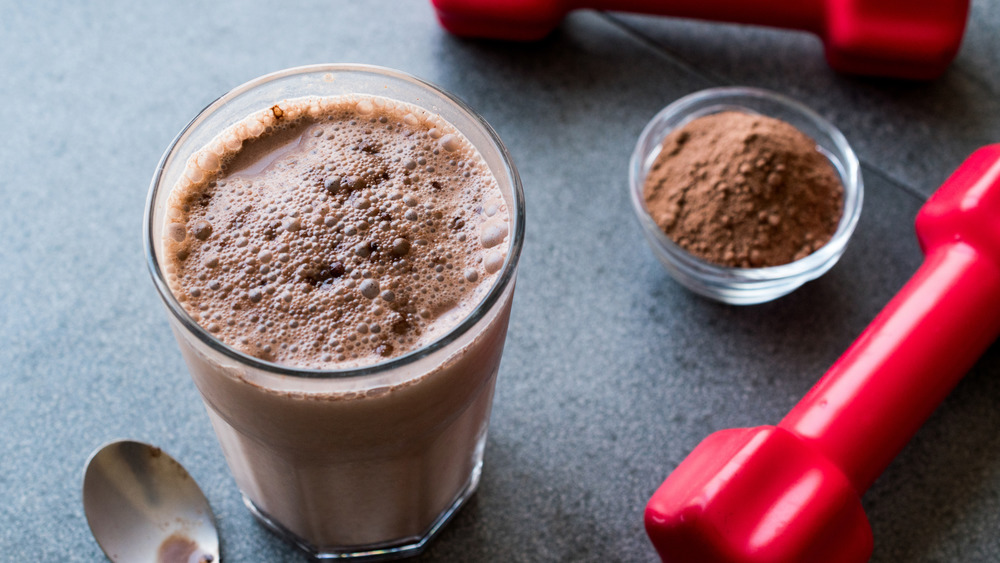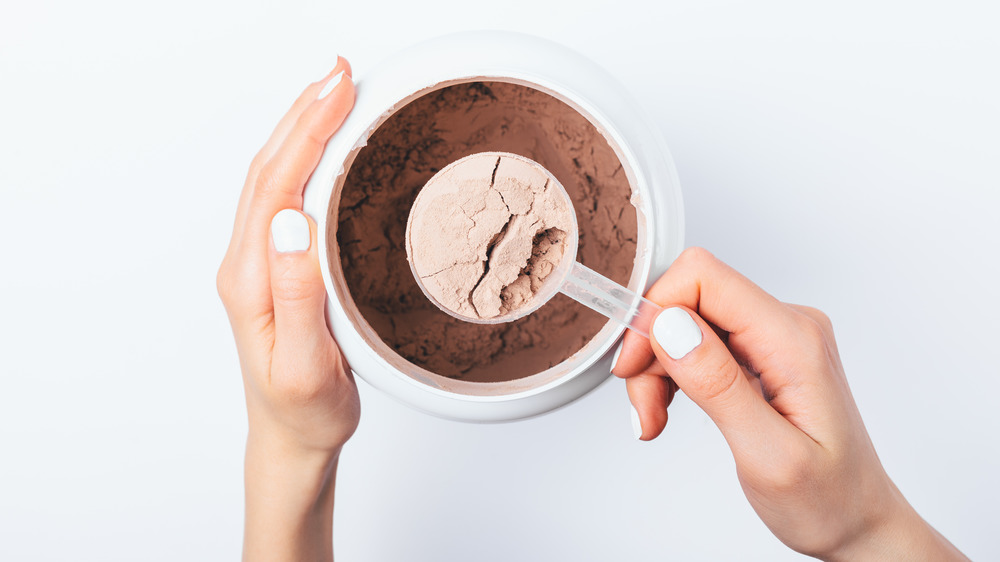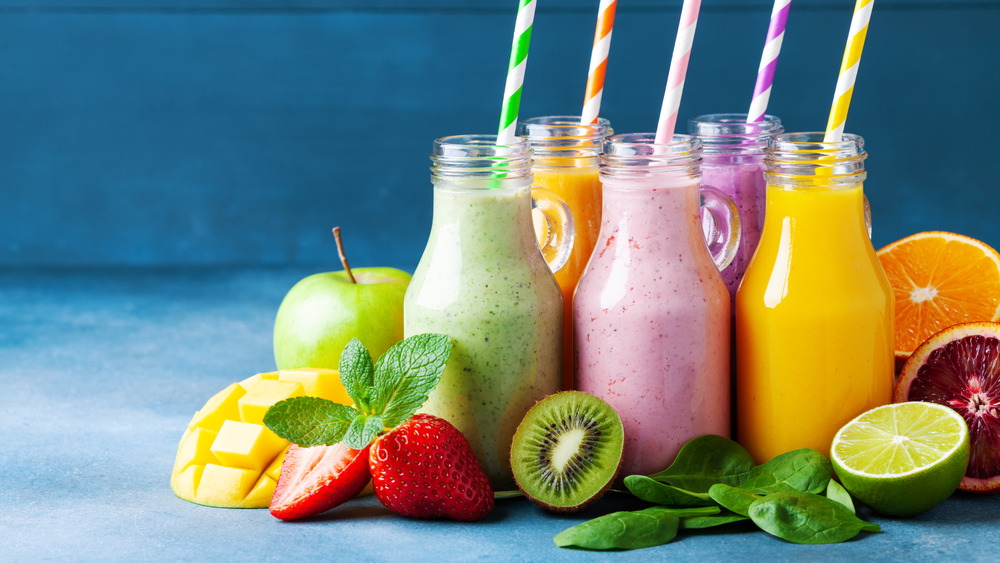How To Know If Your Protein Shake Is Terrible For You
If you're looking to increase your protein intake with a souped-up shake, ask yourself two questions: 1. Do I really need the extra protein? 2. Will I consume a bunch of unnecessary, maybe toxic ingredients?
The average adult needs 46 to 56 grams of protein a day, depending on weight and overall health (via Mayo Clinic). To figure out how much you need, multiply your weight in pounds by 0.36 (via Harvard Health). If you're fairly sedentary, that's your number. If you exercise regularly, you need more, and the Academy of Nutrition and Dietetics recommends that athletes consume 1.2 to 2.0 grams of protein per kilogram (2.2 pounds) of body weight, spaced out throughout the day. If weight loss is your goal, upping protein intake can help boost metabolism and reduce appetite (via Healthline).
It's not just protein quantity that's important, protein quality matters, too. According to Healthline, protein from animal sources provides all essential amino acids, in the right ratio, for you to make full use of them, which makes sense, since animal tissues are similar to our own tissues. If you eat a balanced diet that includes meat, fish, eggs, and dairy products every day, you're likely getting enough protein and don't need shakes.
According to Piper Gibson, holistic health and nutrition expert, "Protein shakes are a convenient way to get added protein, but the sad truth is, not all protein shakes are created equal, and many of them don't offer much in the way of nutritional value."
Protein, heavy metals, and sugar in one fell scoop
Protein powders are powdered forms of protein from plants (soybeans, peas, rice, potatoes, hemp), milk (casein or whey protein), and eggs (via Harvard Health). But we're not talking about taking whole foods and buzzing them in a coffee grinder; companies extract the protein in labs, so you get the protein, but not the other components of the food.
You know what else you might be getting? Heavy metals, and not the Spotify kind. Research conducted by the Clean Label Project revealed that many of the protein powders they tested contained lead, arsenic, cadmium, and mercury, as well as bisphenol-A (BPA, used to make plastic). Exposure to these substances is linked to cancer, brain damage, heart disease, and stroke (via Consumer Reports). The contaminants come from manufacturing and/or the presence of toxins in soil, absorbed by plants and incorporated into the powders (via Harvard Health).
Plus, many protein powders have added sugars and artificial flavors and colors. Gibson points out that some might contain "Acesulfame Potassium with added caramel color, a brown artificial coloring linked to lung, liver, thyroid cancer, or leukemia in laboratory mice or rats." Gibson adds, "In California, caramel color is considered a probable carcinogen and carries a 'Prop 65 "label.'"
Gibson notes that glucose syrup is the second ingredient in Carnation's Instant Breakfast High Protein shake and quips, "It's not an excellent way to start your day."
Too much protein can be a bad thing
Depending on the drink and the serving size, you may get more protein than your body can effectively use. Your body can only handle up to 35 grams of protein in a single sitting. That means, if you guzzle a shake close to mealtime, your body takes the extra protein it doesn't need, turns it into glucose, and then stores it as fat (via Men's Health). This is not quite the result you're looking for if getting lean is your goal.
There's more. Medical News Today asserts that excess protein can cause intestinal discomfort and indigestion, dehydration, unexplained exhaustion, nausea, irritability, headaches, and diarrhea. And that's the easy stuff — additional, serious risks associated with chronic protein overconsumption include cardiovascular disease, blood vessel disorders, liver and kidney damage, type 2 diabetes, cancer, osteoporosis, and osteopenia.
Still want a shake? If so, Gibson suggests you seek out a high quality shake or powder with the "fewest ingredients, no artificial colors or flavors, no artificial sweeteners, and no added sugars (via Regenerating Health). Better yet, head over to Kitchn and make your own shakes from scratch, with no powders needed.


